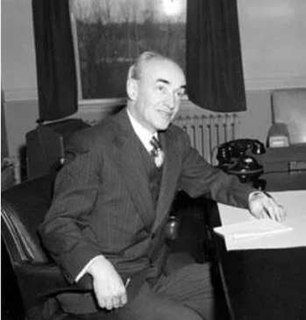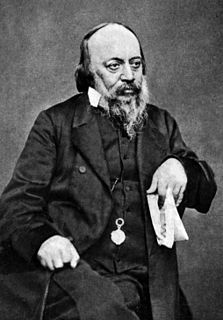A Quote by Albert Einstein
Most people say that it is the intellect which makes a great scientist. They are wrong: it is character.
Related Quotes
Good character is that quality which makes one dependable whether being watched or not, which makes one truthful when it is to one's advantage to be a little less than truthful, which makes one courageous when faced with great obstacles and which endows one with the firmness of' wise self-discipline.
People don't stop me on the street and throw things at me. But I'm aware of what that dynamic is, so whenever people react strongly to a character and say that they hate me, I take it as a job well done. And for most people, there's a sense of removal. Most people are not saying, "Oh, my god, I hate you!" Most people that have reactions say, "I love to hate your character."
Keynes was a great economist. In every discipline, progress comes from people who make hypotheses, most of which turn out to be wrong, but all of which ultimately point to the right answer. Now Keynes, in 'The General Theory of Employment, Interest and Money,' set forth a hypothesis which was a beautiful one, and it really altered the shape of economics. But it turned out that it was a wrong hypothesis. That doesn't mean that he wasn't a great man!
If you want to write about a person who isn't nice, people say, "This is a bad book. It's about somebody I couldn't stand." But that's not the point. You don't have to like a character to like a book. Most of the time, people would misjudge and say, "I didn't like the book." No, you didn't like the character. That doesn't make it any less interesting of a book. In fact, to me, it makes it more interesting.
I definitely notice the absence of character in most poetry, which is not so say that I'm an innovator in that regard. Character-based poems are not weird or new by any stretch but they feel strange and new because the atmosphere is one in which no one does that. People always talk about, and with good reason, poetry's unpopularity. When people say that they forget or they brush aside the fact that in the middle part of the last century poetry was immensely popular. Dylan Thomas was basically a rock star; so was Anne Sexton.
If I ask you who is the most famous scientist who ever lived, or the greatest scientist who ever lived you'll say either Einstein or Newton or something like that because their claims were supposed to apply universally. But the claim of somebody who is studying a particular feature of the evolutionary process like whether it's very fast or very slow, or occurs in steps and so on, that's not a universal claim, that's a rather specialised claim and so you can't claim to great fame and great success.
The intellect of most men is barren. They neither fertilize or are fertilized. It is the marriage of the soul with nature that makes the intellect fruitful, that gives birth to imagination...without nature-awakened imagination most persons do not really live in the world, they merely pass through it as they live dull lives of quiet desperation.





































